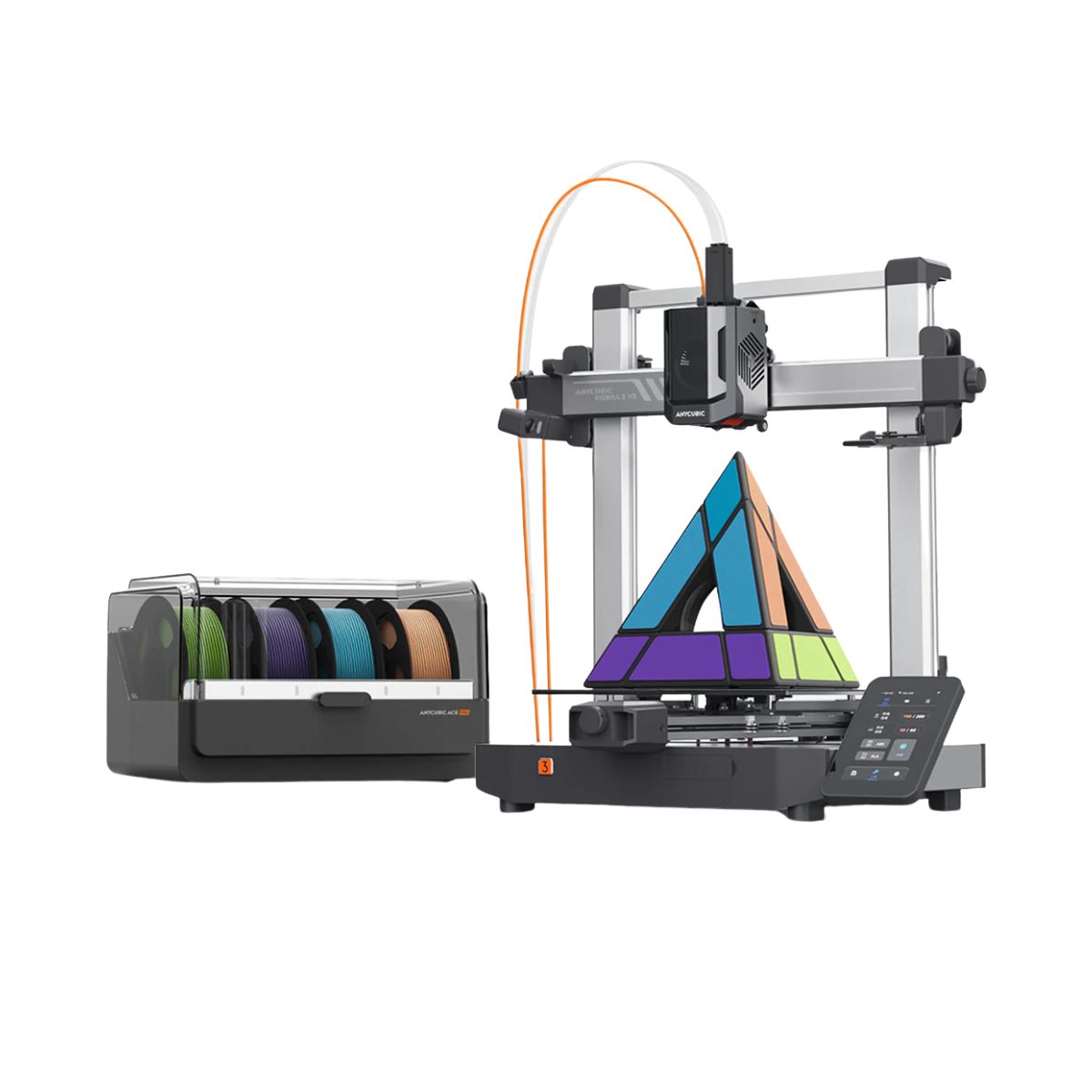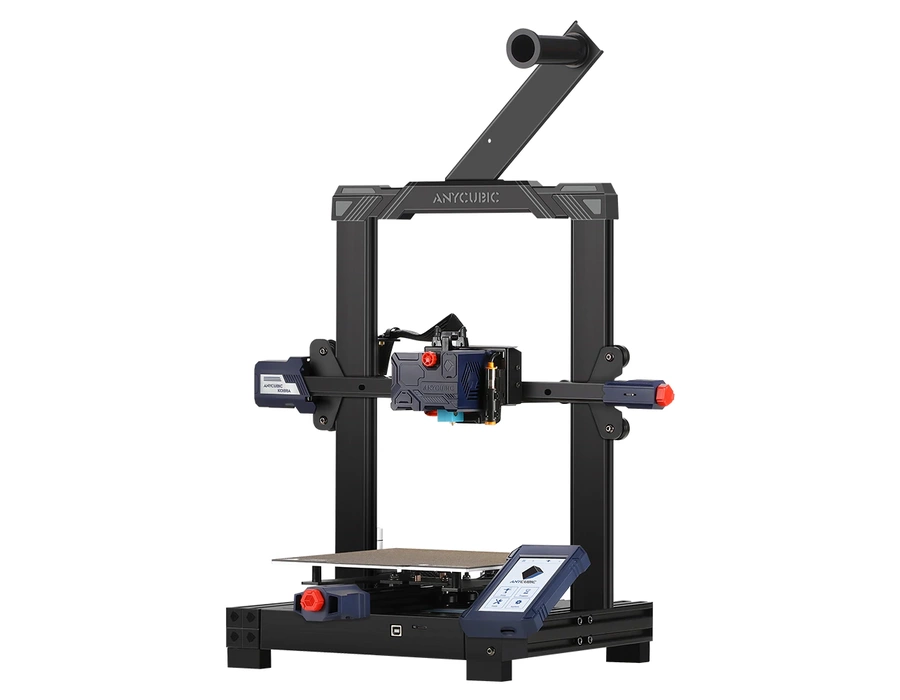Compare Kobra 3 V2 Combo vs Kobra
Comparison between the best 3D printers
Choose the best 3D printer at the best price. The cheapest 3D printers are here.
Buy a 3D printer here with 3D Fila.
 |
 |
|
| Model | Kobra 3 V2 Combo[BUY Kobra 3 V2 Combo] |
Kobra |
| Printing Material | Filament | Filament |
| Buy Filament for Anycubic Kobra 3 V2 Combo | Buy Filament forAnycubic Kobra | |
| Estimated price | $379,00 | $259,00 |
| Manufacturer | Anycubic | Anycubic |
| Release Year | 2025 | 2022 |
| Print Volume [mm] | 255x255x260 | 220x220x250 |
| Printer Size [mm] | 452x504x483 | 486x430x486 |
| Weight [kg] | 9,37 | 7 |
| Power Loss Recovery | YES | YES |
| Enclosed printer | NO | NO |
| Bed Leveling | Automatic | Automatic |
| Filament End Sensor | YES | NO |
| Bed type | Heated | Heated |
| Power supply system | Direct Drive | Direct Drive |
| Standard nozzle | 0,4 | 0,4 |
| Maximum Nozzle Temperature [°C] | 300 | 260 |
| Maximum Bed Temperature [°C] | 110 | 110 |
| Maximum printing speed [mm/s] | 600 | 180 |
| Filament holder | YES | YES |
| Camera for supervision | NO | NO |
| Recommended filaments | PLA/PETG/TPU (TPU is not compatible with the ACE Pro) | PLA, PETG, Tritan, Flex, ABS |
| Recommended slicers | Anycubic Slicer, Cura, Orca Slicer | Cura, Simplify, Slic3r, IdeaMaker |
| Maximum Resolution [mm] | 0,1 | 0,1 |
| Processor | 32 bits | |
| Display | Touchscreen 4,3'' | Display touchscreen 4,3'' |
| Power Supply | 400 W | 110/220V / 400W |
| Connectivity | USB, Wi-Fi, Cloud | SD / USB |
| Operating systems | Windows, Linux, Macbook | Windows, Mac, Linux |
| Date of registration in the system | 2025-06-03 | 2022-11-09 |
| Release date | 2025 | 2022 |
| Extra features | The Kobra 3 V2 Combo brings notable upgrades: a wider Y-axis and SG15 bearings on the X-axis for greater stability, a redesigned nozzle to prevent leakage, a larger build volume (255x255x260 mm), a built-in 720p camera, and native support for 4- or 8-color printing with no extra hub required. All of this combined with LeviQ 3.0 auto-leveling and integrated filament drying. | The Anycubic Kobra features automatic bed leveling and a direct extruder for easy filament handling. The print bed is coated with PEI on a flexible steel plate, improving adhesion and making prints easier to remove. The printer features sensorless homing and is designed to be easily disassembled for easy maintenance and customization. |
| Support for multiple colors and materials (AMS and CFS) | YES | NO |
Notes * |
||
| Cost-benefit | 8 / 10 | 7 / 10 |
| Hardware | 4.5 / 10 | 1.8 / 10 |
| Tela | . | . |
| Print volume | 4 / 10 | 3 / 10 |
| Performance | 5 / 10 | 1 / 10 |
| [BUY Kobra 3 V2 Combo] |
Conclusion |
| In conclusion, the comparison between the Kobra 3 V2 Combo and the Anycubic Kobra highlights several key differences that may influence purchasing decisions based on individual needs and budget constraints. The Kobra 3 V2 Combo, being the newer model, boasts a larger print volume and higher printing speed, which could benefit those who require efficient and large-format printing. Its advanced features, such as a filament end sensor and support for multiple colors and materials, enhance its versatility and usability for more complex projects. Additionally, the inclusion of updates like LeviQ 3.0 auto-leveling and integrated filament drying further solidifies its appeal for users seeking convenience and high-quality prints. On the other hand, the Anycubic Kobra, while slightly more affordable, still offers solid performance with automatic bed leveling and a direct drive system. It is tailored for users who may not need the expansive features of the Kobra 3 V2 Combo but still desire reliable print capabilities for basic projects. Its simpler setup could also benefit beginners or hobbyists looking for a straightforward entry point into 3D printing. Ultimately, while the Kobra 3 V2 Combo presents more advanced features and larger build capacity, the Anycubic Kobra remains a strong contender for those mindful of budget and looking for an effective, if basic, printing solution. The choice will largely depend on the user's specific requirements and how much they prioritize additional features over cost. |

